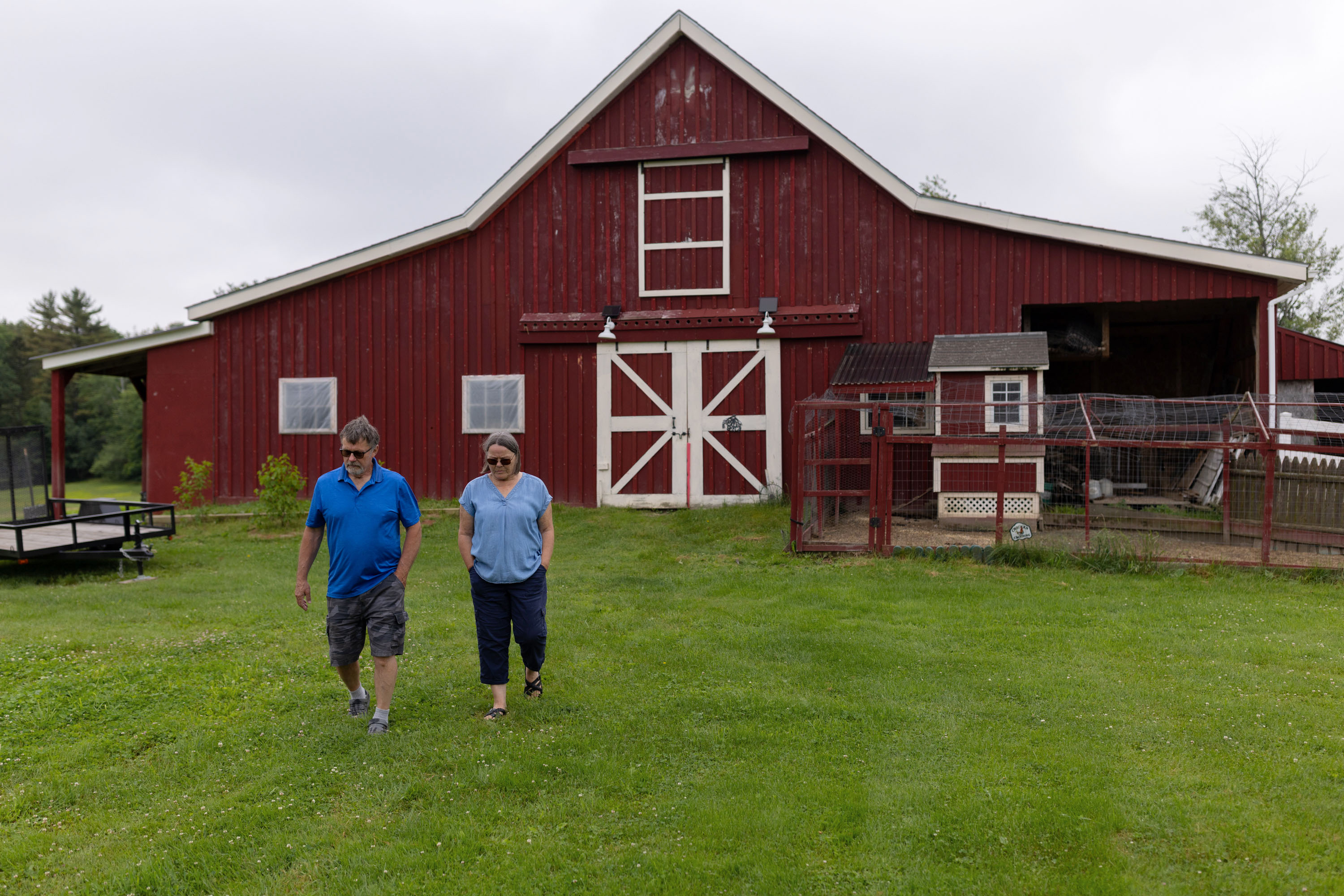When Lawrence and Penny Higgins of Fairfield, Maine, first discovered in 2020 that prime ranges of poisonous chemical compounds known as PFAS taint their house’s effectively water, they questioned how their well being may endure. That they had consumed the water for many years, given it to their pets and livestock, and used it to irrigate their vegetable backyard and fruit timber.
“We wished to search out out simply what it’s going to do to us,” Penny Higgins mentioned. They contacted a few medical doctors, however “we had been met with a brick wall. No person knew something.”
Worse nonetheless, she added, they “actually didn’t need to hear about it.”
Many clinicians stay unaware of the well being dangers linked to PFAS, brief for perfluoroalkyl and polyfluoroalkyl substances, regardless of rising medical and public consciousness of the chemical compounds and their toxicity. PFAS can have an effect on almost each organ system and linger in our bodies for many years, elevating dangers of most cancers, immune deficiencies, and being pregnant problems.
These “ceaselessly chemical compounds” have been extensively used because the Nineteen Fifties in merchandise together with cosmetics, cookware, clothes, carpeting, meals packaging, and firefighting foam. Researchers say they permeate water techniques and soils nationwide, with a federal examine estimating that no less than 45% of U.S. faucet water is contaminated. PFAS could be detected within the blood of almost all Individuals, in keeping with the Facilities for Illness Management and Prevention.
Maine was among the many first states to start in depth water and soil testing and to attempt to restrict additional public publicity to PFAS by way of coverage motion, after discovering that farms and residences — just like the Higgins’ property — had been contaminated by land-spreading of wastewater sludge containing PFAS. Publicity will also be excessive for individuals dwelling close to navy bases, fireplace coaching areas, landfills, or manufacturing amenities.
In areas the place testing reveals PFAS sizzling spots, medical suppliers could be caught flat-footed and sufferers left adrift.
Rachel Criswell, a household follow physician and environmental well being researcher, is working to vary that. She was finishing her residency in Central Maine across the time that the Higginses and others there started discovering the extent of the contamination. Her medical coaching at Columbia College included greater than a yr in Norway researching the results of PFAS and different chemical compounds on maternal and toddler well being.
When sufferers started asking about PFAS, Criswell and the state toxicologist provided major care suppliers lunchtime shows on how you can reply. Since then, she has fielded frequent PFAS questions from medical doctors and sufferers all through the state.
Even educated suppliers can discover it difficult to remain present given quickly evolving scientific data and few established protocols. “The work I do is exhausting and time-consuming and typically irritating,” Criswell mentioned, “however it’s precisely what I must be doing.”
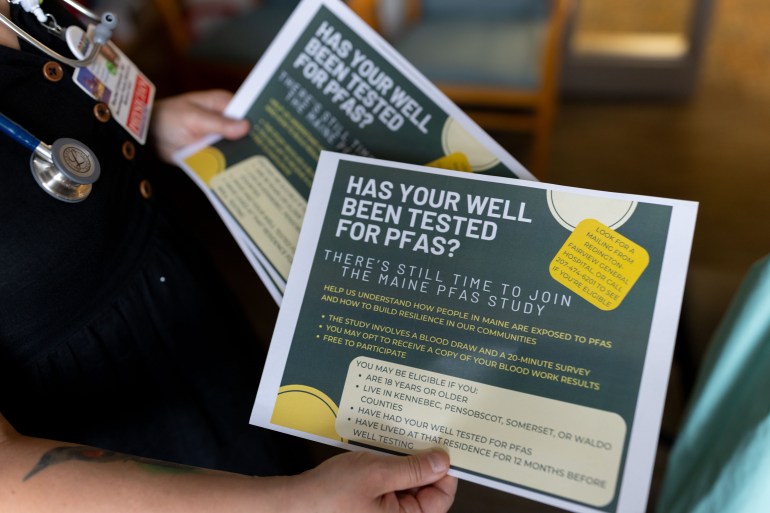
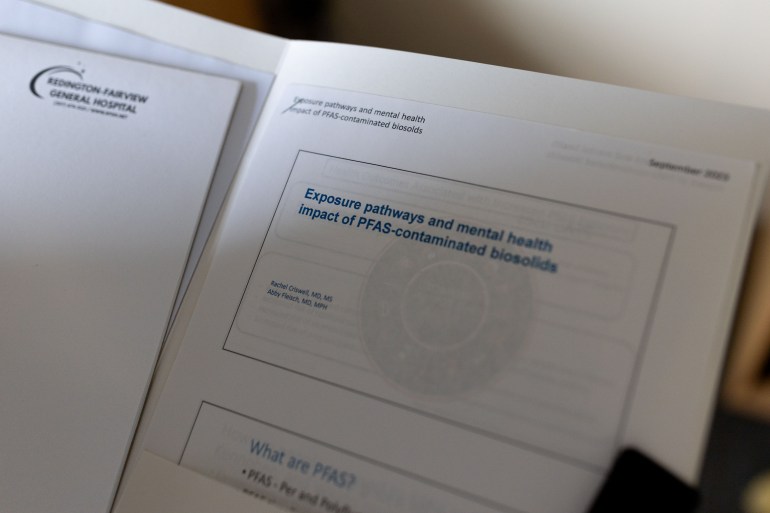
Phil Brown, a Northeastern College sociology professor and a co-director of the PFAS Mission Lab, mentioned the medical neighborhood “doesn’t know lots about occupational and environmental well being,” including that “it’s a really minimal a part of the medical faculty curriculum” and persevering with training.
Courtney Carignan, an environmental epidemiologist at Michigan State College, mentioned studying of PFAS publicity, whether or not from their ingesting water or occupational sources, “is a delicate and upsetting state of affairs for individuals” and “it’s useful if their medical doctors can take it severely.”
Medical steering regarding PFAS improved after the Nationwide Academies of Sciences, Engineering, and Drugs launched a report on PFAS in 2022. It discovered sturdy proof associating PFAS with kidney most cancers, excessive ldl cholesterol, lowered beginning weights, and decrease antibody responses to vaccines, and a few proof linking PFAS to breast and testicular most cancers, ulcerative colitis, thyroid and liver dysfunction, and pregnancy-induced hypertension.
That steering “revolutionized my follow,” Criswell mentioned. “As an alternative of being this hand-wavey factor the place we don’t know how you can apply the analysis, it introduced a level of concreteness to PFAS publicity that was sort of lacking earlier than.”
The nationwide academies affirmed what Criswell had already been recommending: Docs ought to order blood assessments for sufferers with identified PFAS exposures.
Testing for PFAS in blood — and for associated medical circumstances if wanted — may help ease sufferers’ anxiousness.
“There isn’t a day that goes by,” Lawrence Higgins mentioned, “that we don’t assume and marvel when our our bodies are going to close down on us.”
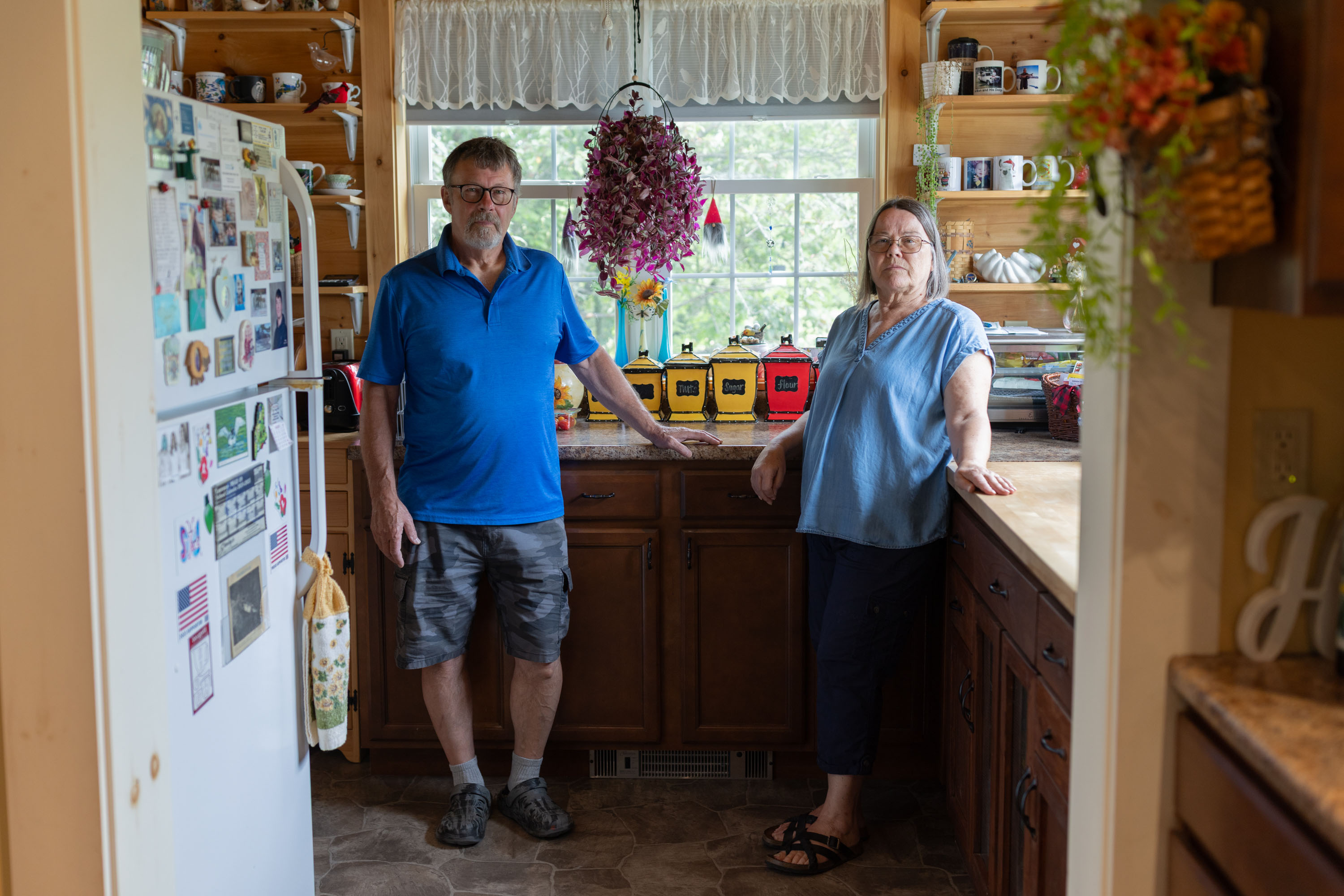
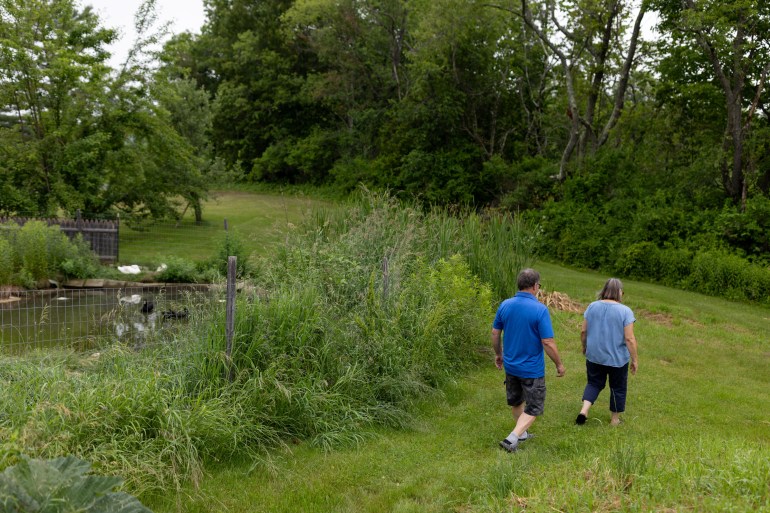

‘Devastating however Extremely Useful’
After discovering out in 2021 that his household was uncovered to PFAS by way of sludge unfold on their Unity, Maine, farm a long time earlier, Adam Nordell found that “it was exceedingly tough” to get examined. “Our household physician had not heard of PFAS and didn’t know what the check was,” he mentioned. A lab technician wanted teaching from an out of doors professional to supply the check. The lab analyzing the samples had a backlog that left the household ready three months.
“The outcomes had been devastating however extremely useful,” Nordell mentioned. Their blood serum ranges for PFAS had been at roughly the 99th percentile nationally, far increased than their well-water ranges would have predicted — indicating that further publicity was most likely coming from different sources corresponding to soil contact, mud, and meals.
Blood ranges of PFAS between 2 and 20 nanograms per milliliter could also be problematic, the nationwide academies reported. In extremely contaminated settings, blood ranges can run upward of 150 occasions the 20-ng/mL danger threshold.
Nordell and his household had been planning to stay on the farm and develop crops much less affected by PFAS, however the check outcomes persuaded them to depart. “Information is energy,” Nordell mentioned, and having the blood knowledge “gave us company.”
The nationwide academies’ steering paved the way in which for extra clinicians to order PFAS blood assessments. The associated fee, sometimes $400 to $600, could be prohibitive if not picked up by insurance coverage, and never all insurers cowl the testing. Deductibles and copays can even restrict sufferers’ capability to get examined. Less expensive finger-prick assessments, administered at house, seem to seize a few of the extra generally discovered PFAS as precisely as blood serum assessments, Carignan and colleagues discovered.
Maine legislators just lately handed, with overwhelming help, a invoice — modeled after one in New Hampshire — that may require insurers to contemplate PFAS blood testing a part of preventive care, however it was carried over to the subsequent legislative session.
“In my thoughts, it’s a no brainer that the PFAS blood serum check must be universally provided — for free of charge to the affected person,” mentioned Nordell, who now works as a marketing campaign supervisor for the nonprofit Defend Our Well being. Early screening for the illnesses related to PFAS, he mentioned, is “a humane coverage that’s in one of the best pursuits of everybody concerned” — sufferers, suppliers, and insurance coverage corporations.
Criswell tells colleagues in household follow that they’ll view elevated PFAS blood ranges as a danger issue, akin to smoking. “What’s difficult as a major care physician is the nitty-gritty” of the testing and screening logistics, she mentioned.
In trainings, she shares a handout summarizing the nationwide academies’ steering — together with related heath circumstances, blood testing, medical follow-up, and publicity discount — to which she has added particulars about lab check order codes, insurance coverage prices and protection, and water filtration.
Criswell served on an advisory committee tasked with allocating $60 million in state funds to deal with PFAS contamination from previous sludge-spreading in Maine. The group really helpful that labs analyzing PFAS blood assessments ought to report the outcomes to state public well being authorities.
That change, slated to take impact this summer time, will enable Maine well being officers to observe up with individuals who have excessive PFAS blood ranges to raised decide potential sources and to share data on well being dangers and medical screening. As with many earlier PFAS insurance policies, Maine is among the many first states to undertake this measure.
Screening for PFAS is falling brief in lots of locations nationwide, mentioned Kyle Horton, an internist in Wilmington, North Carolina, and founding father of the nonprofit On Your Aspect Well being. She estimates that solely about 1 in 100 individuals dealing with excessive PFAS publicity are getting sufficient medical steering.
Even in her extremely contaminated neighborhood, “I’m not conscious of anybody who’s routinely screening or discussing PFAS mitigation with their sufferers,” Horton mentioned. Information of native PFAS threats, she added, “hasn’t translated over to people managing sufferers otherwise or attempting to get by way of to that subsequent section of medical monitoring.”
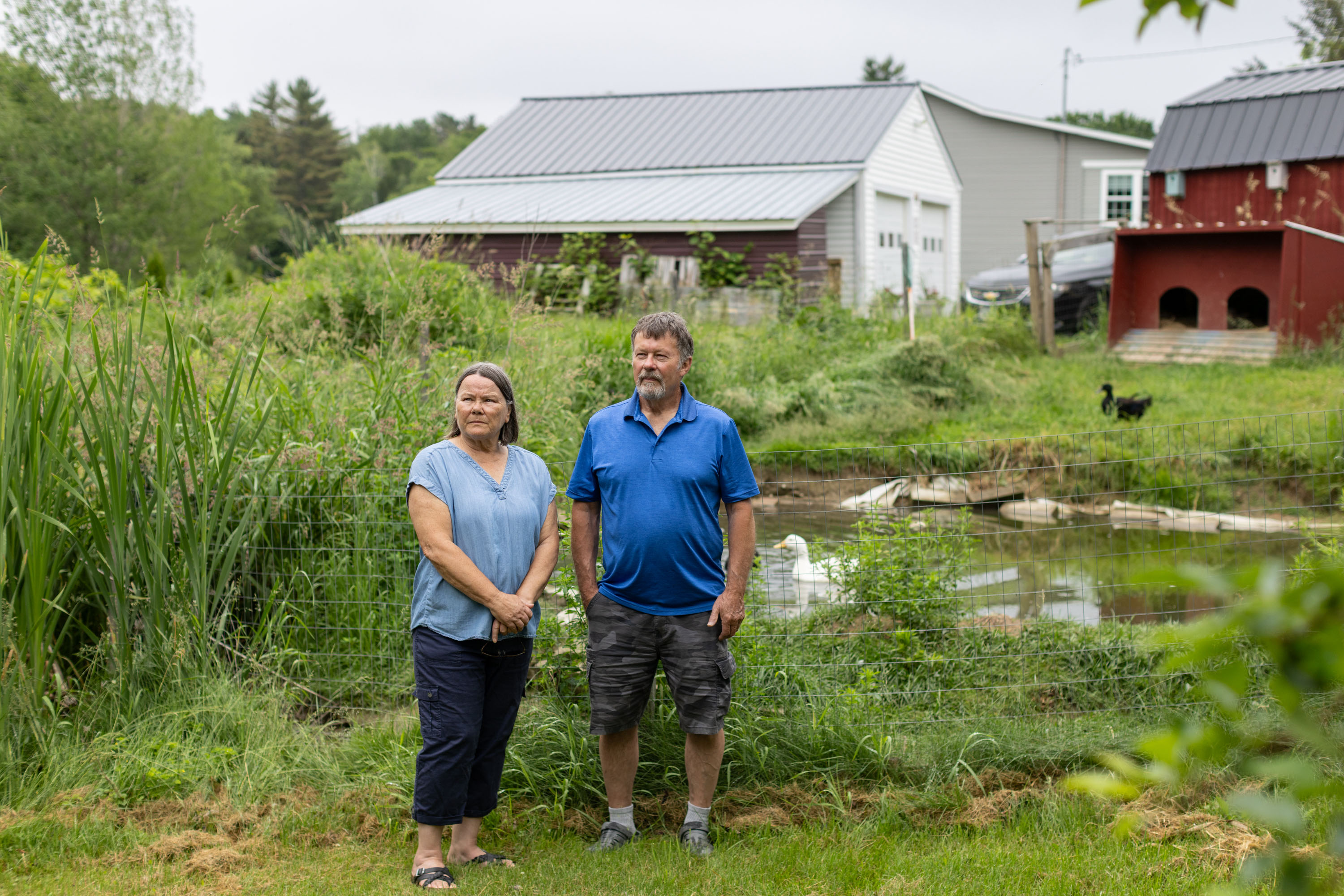
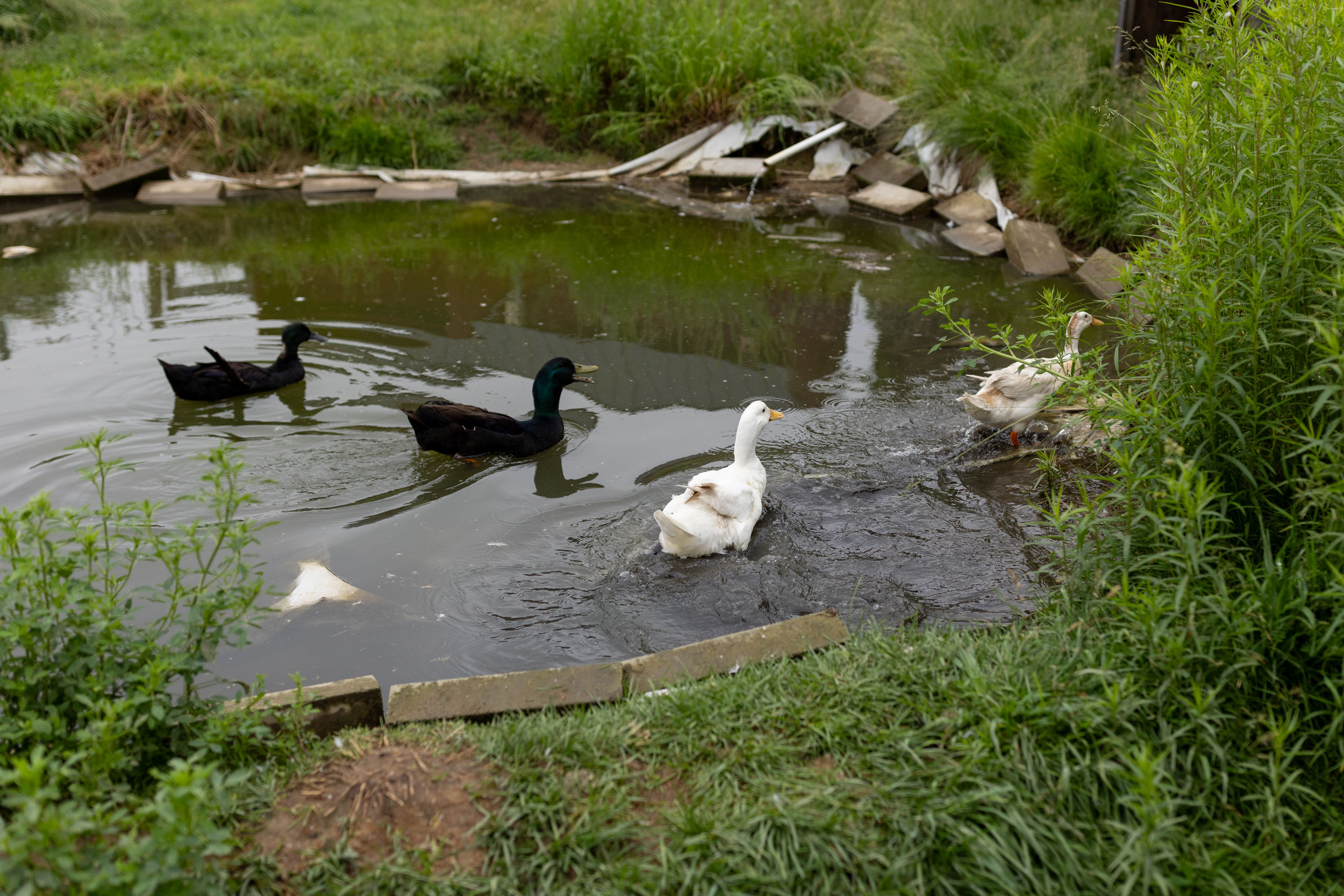
Sufferers as Advocates
In closely affected communities — together with in Michigan, Maine, and Massachusetts — sufferers are pushing the medical subject to raised perceive PFAS.
Extra medical doctors are talking out as effectively. Testifying earlier than a Maine legislative committee this yr in help of a invoice that may restrict occupational PFAS publicity, Criswell mentioned, “We, as physicians, who’re sworn to guard the well being of our sufferers, should take note of the underlying causes of the diseases we deal with and arise for coverage options that scale back these causes.”
Even the place coverage adjustments are instituted, the bodily and psychological toll of “ceaselessly chemical compounds” will lengthen far into the long run. Criswell and different Maine medical doctors have noticed power stress amongst sufferers.
Nordell, the previous farmer, described his household’s contamination as “deeply, deeply jarring,” an ordeal that has at occasions left him “unmoored from a way of safety.”
To evaluate the psychological well being penalties of PFAS publicity in rural residents, Criswell and Abby Fleisch, a pediatric endocrinologist on the MaineHealth Institute for Analysis, teamed up on a examine. In its first section, winding up this summer time, they collected blood samples and detailed way of life data from 147 individuals.
Nordell, the Higginses, and different Central Maine residents sit on an advisory board for the examine, a step Criswell mentioned was crucial to making sure that their analysis helps these most affected by PFAS.
“The urgency from the neighborhood is admittedly wanted,” she mentioned. “I don’t assume I’d be as fired up if my sufferers weren’t such good advocates.”
Criswell has confronted what she calls “cognitive dissonance,” caught between the deliberate tempo of peer-reviewed medical analysis and the fast wants of sufferers wanting to decrease their PFAS physique burden. Initially she thought of inviting residents to take part in a medical trial to check therapies which might be thought of protected and will assist scale back PFAS ranges within the physique, corresponding to high-fiber diets and a drug designed to cut back ldl cholesterol known as cholestyramine. However the medical trial course of may take years.
Criswell and Fleisch are as an alternative planning to supply a case collection on PFAS blood-level adjustments in sufferers taking cholestyramine. “We will validate the analysis outcomes and share these,” Criswell mentioned, probably serving to different sufferers.
Alan Ducatman, an internist and occupational doctor who helped design the largest PFAS cohort examine so far, mentioned suppliers ought to convey that “there isn’t a risk-benefit evaluation” for any of the present therapies, though they’re typically well-known and low-risk.
“Some individuals need to be handled, and they need to be allowed to be handled,” he mentioned, as a result of understanding they’ve excessive PFAS ranges of their our bodies “preys on them.”
